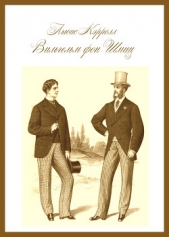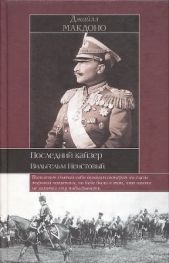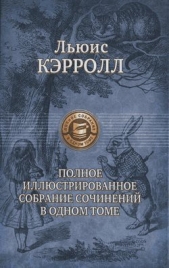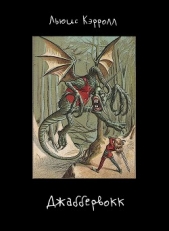Вильгельм фон Шмиц (3 перевода и оригинал)

Вильгельм фон Шмиц (3 перевода и оригинал) читать книгу онлайн
В данной публикации рассказ Льюиса Кэрролла "Вильгельм фон Шмиц" представлен в трёх переводах на русский язык и в английском оригинале, что даёт читателю возможность для сравнения.
Внимание! Книга может содержать контент только для совершеннолетних. Для несовершеннолетних чтение данного контента СТРОГО ЗАПРЕЩЕНО! Если в книге присутствует наличие пропаганды ЛГБТ и другого, запрещенного контента - просьба написать на почту [email protected] для удаления материала
In a small parlour hard by, unknown, untended, though his Sukie was so near, wet, moody, and dishevelled, sat the youth: the fire had been kindled at his desire, and before it he was now drying himself, but as "the cheery blaze. Blithe harbinger of wintry days", to use his own powerful description, consisted at present of a feeble, spluttering faggot, whose only effect was to half-choke him with its smoke, he may be pardoned for not feeling, more keenly than he does, that ". . . fire of Soul, When gazing on the kindling coal, A Britain feels that, spite of fone. He wots his native hearth his own!" we again employ his own thrilling words on the subject.
The waiter, unconscious that a Poet sat before him, was talking confidingly; he dwelt on various themes, and still the youth sat heedless, but when at last he spoke of Sukie, those dull eyes flashed with fire, and cast upon the speaker a wild glance of scornful defiance, that was unfortunately wasted, as its object was stirring the fire at the moment and failed to notice it. "Say, oh say those words again!" he gasped. "I surely heard thee not aright!" The waiter looked astonished, but obligingly repeated his remark, "I were merely a saying, sir, that she's an uncommon clever girl, and as how I were 'oping some day to hacquire her Hart, if so be that — " He said no more, for the Poet with a groan of anguish, had rushed distractedly from the room.
Chapter III
"Nay, Tis Too Much!"
(Old Play)
Night, solemn night.
On the present occasion the solemnity of night's approach was rendered far more striking than it is to dwellers in ordinary towns, by that time-honoured custom observed by the people of Whitby, of leaving their streets wholly unlighted: in thus making a stand against the deplorably swift advance of the tide of progress and civilization, they displayed no small share of moral courage and independent judgment. Was it for a people of sense to adopt every new-fangled invention of the age, merely because their neighbours did? It might have been urged, in disparagement of their conduct, that they only injured themselves by it, and the remark would have been undeniably true; but it would only have served to exalt, in the eyes of an admiring nation, their well-earned character of heroic self-denial and uncompromising fixity of purpose.
Headlong and desperate, the lovelorn Poet plunged through the night; now tumbling up against a doorstep, and now half down in a gutter, but ever onward, onward, reckless where he went.
In the darkest spot of one of those dark streets (the nearest lighted shop window being about fifty yards off), chance threw into his way the very man he fled from, the man whom he hated as a successful rival, and who had driven him to this pitch of frenzy. The waiter, not knowing what was the matter, had followed him to see that he came to no harm, and to bring him back, little dreaming of the shock that awaited him.
The instant the Poet perceived who it was, all his pent-up fury broke forth; to rush upon him, to grasp him by the throat with both hands, to dash him to the ground, and there to reduce him to the extreme verge of suffocation — all this was the work of a moment.
"Traitor! villainl malcontent! regicide!" he hissed through his closed teeth, taking any abusive epithet that came into his head, without stopping to consider its suitability. "Is it thou? Now shalt thou feel my wrath!" And doubtless the waiter did experience that singular sensation, whatever it may have been, for he struggled violently with his assailant, and bellowed "murder" the instant he recovered his breath.
"Say not so," the Poet sternly answered, as he released him; "it is thou that murderest me." The waiter gathered himself up, and began in great surprise, "Why, I never ——" " 'Tis a he!" the Poet screamed; "she loves thee not! Me, me alone." "Who ever said she did?" the other asked, beginning to perceive how matters stood. "Thou! thou saidst it," was the wild reply, "what, villain? acquire her heart? thou never shalt."
The waiter calmly explained himself: "My 'ope were. Sir, to hacquire her Hart of waiting at table, which she do perdigious well, sure-ly: seeing that I were thinking of happlying for to be 'cadwaiter at the 'otel." The Poet's wrath instantly abated, indeed, he looked rather crestfallen than otherwise; "Excuse my violence," he gently said, "and let us take a friendly glass together." "I agree," was the waiter's generous answer, "but man halive, you've ruinated my coat!"
"Courage," cried our hero gaily, "thou shalt have a new one anon: aye, and of the best cashmere." "H'm," said the other, hesitatingly,' 'wouldn't hany other stuff ——" "I will not buy thee one of any other stuff," returned the Poet, gently but decidedly, and the waiter gave up the point.
Arrived once more at the friendly tavern, the Poet briskly ordered a jorum of Punch, and, on its being furnished, called on his friend for a toast. "I'll give you," said the waiter, who was of a sentimental turn, however little he looked like it, "I'll give you — Woman! She doubles our sorrows and 'alves our joy." The Poet drained his glass, not caring to correct his companion's mistake, and at intervals during the evening the same inspiring sentiment was repeated. And so the night wore away, and another jorum of Punch was ordered, and another.
* * * * *
"And now hallow me," said the waiter, attempting for about the tenth time to rise on his feet and make a speech, and failing even more signally than he had yet done, "to give a toast for this 'appy hoccasion. Woman! she doubles ——" but at this moment, probably in illustration of his favourite theory, he "doubled" himself up, and so effectually, that he instantly vanished under the table.
Occupying that limited sphere of observation, it is conjectured that he fell to moralizing on human ills in general, and their remedies, for a solemn voice was presently heard to issue from his retreat, proclaiming feelingly though rather indistinctly, that "when the 'art of man is hopressed with care ——" here came a pause, as if he wished to leave the question open to discussion, but as no one present seemed competent to suggest the proper course to be taken in that melancholy contingency, he attempted to supply the deficiency himself with the remarkable statement "she's hall my fancy painted 'er".
Meanwhile the Poet was sitting, smiling quietly to himself, as he sipped his punch: the only notice he took of his companion's abrupt disappearance was to help himself to a fresh glass, and say, "your health!" in a cordial tone, nodding to where the waiter ought to have been. He then cried, "hear, hear!" encouragingly, and made an attempt to thump the table with his fist, but missed it. He seemed interested in the question regarding the heart oppressed with care, and winked sagaciously with one eye two or three times, as if there were a good deal he could say on that subject, if he chose; but the second quotation roused him to speech, and he at once broke into the waiter's subterranean soliloquy with an ecstatic fragment from the poem he had been just composing:
"What though the world be cross and crooky?
Of Life's fair flowers the fairest bouquet
I plucked, when I chose thee, my Sukie!


























